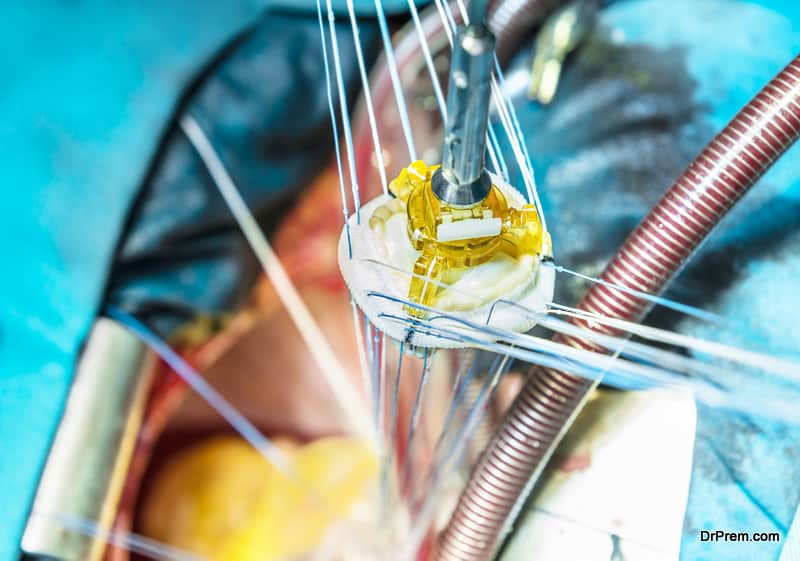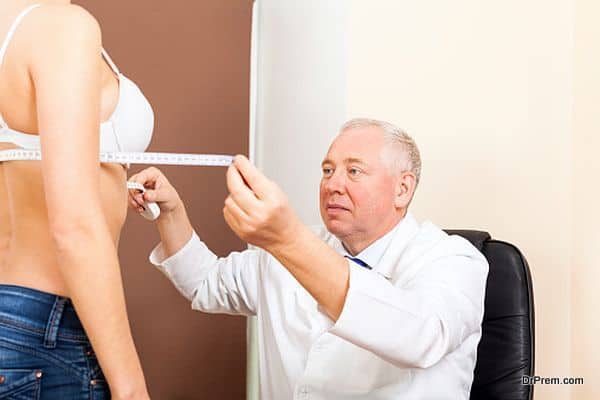Definition:
A heart valve replacement surgery is performed to replace a diseased (narrow or leaky) mitral or aortic valve of the heart; either with mechanical (made up of metal, plastic, carbon) valve or one made of animal tissue. In some patients the Homo graphs—donated by a human donor are also used. The metal valves are stronger and last longer compared to the animal tissue valve.
Why it is needed:
- Narrow heart valve/leaky heart valve
- Medication
- Infection
- Calcium deposits
- Birth defect
The symptoms caused by a defective heart valve are:
- Palpitation
- Breathlessness on slight effort.
- Paroxysmal nocturnal dyspnoea (PND)—sudden breathing difficulty at night or early morning that wakes patient from sleep.
- Black outs—a symptom caused by narrowing of aortic valves.
- High temperature
- Angina
Facts and Figures:
- The first successful aortic valve replacement with caged-ball artificial valve, performed by Hufnagel in 1952, led many heart surgeons to engage in further research about the treatment of aortic stenosis, which was considered incurable before the 1950s.
- Aortic stenosis is considered the third most common cardiovascular disease, mainly present as a congenital defect; found in almost 4 in 1000 live births.
- According to AHA approximately 99,000 heart valve surgeries are performed each year in America.
Advantages & Disadvantages:
Advantages:
- High success rate of the surgery.
- A successful surgery relieves the patient from debilitating symptoms and prevents the risk of heart failure.
- About 80%of patients who survive the first post operative year are able to return to their normal activities.
- The replaced animal tissue valve generally lasts a long time, whereas the mechanical valve may last for a lifetime.
Disadvantages:
- Patients, who choose to go with a metal valve, need to be on blood thinner medicines throughout their life to reduce the risk of developing blood clots.
- Risk of developing leakage or malfunctioning, which may require another surgery.
- Approximately 5% mortality risk is involved with surgery.
- Longer recovery period especially for the elderly.
Risks & Complications:
- Infection
- Bleeding
- Breathing problems
- Heart attack or stroke
- Lack of mental clarity/confusion
- Kidney problems
- Heart rhythm problems—arrhythmia
- Medicinal or anaesthesia reaction.
Pre-operative preparations:
- Avoid dental treatment before surgery or take antibiotics as per the surgeon’s advice.
- Complete physical examination
- Blood and urinalysis
- Diagnostic tests like ECG, stress tests, cardiac catheterization, X-rays.
- Consultation with surgeon or doctor a week prior to surgery; doctor will advise you on prescribed medications and medicines that need to be discontinued.
- Inform the surgeon about smoking and alcohol consumption patterns. Quit smoking.
- Notify the surgeon if you develop a cold, fever or sore throat a few days before surgery.
- Arrangements with family and/or friends to help during the post-operative rehabilitation.
- Prepare home as per the requirements recovery after the surgery.
- Do not eat or drink anything after midnight the night before surgery.
- The medical tourist is advised to plan for an extended trip and purchase a flexible ticket because he/she may be required to stay at the destination longer.
Post-operative care:
- Usually a patient needs to stay at the hospital for 7-10 days after the surgery, including the first few days in the intensive care unit (ICU). Patient’s vital statistics will be monitored constantly.
- The drainage tube will be removed within 1-3 days after surgery.
- Medication will be given to prevent infection and blood clotting.
- There will be discomfort in the chest during activity for about 2 months.
- Cardiac rehabilitation will commence once patient becomes stable within a few days of the surgery.
Dos, Don’ts and Precautions:
- Do keep the incision clean and dry.
- Do walk daily as per the instructions of the surgeon.
- Patients on blood thinners may need to follow certain precautions and may need to have blood tests done from time to time.
- Follow the prescribed lifestyle changes for optimum results from the surgery.
- Quit smoking.
- Do maintain a healthy weight with proper diet and exercise.
- Participate in post cardiac rehabilitation program.
- Do take the prescribed medication meticulously.
- Be regular at follow up visits with surgeon and physician.
The recovery after the valve replacement surgery may take a comparatively long time, especially in elderly patients. The health status of the patient before surgery also plays an important role in the recovery. However patients can expect the full recovery within 6-8 weeks of the procedure.






